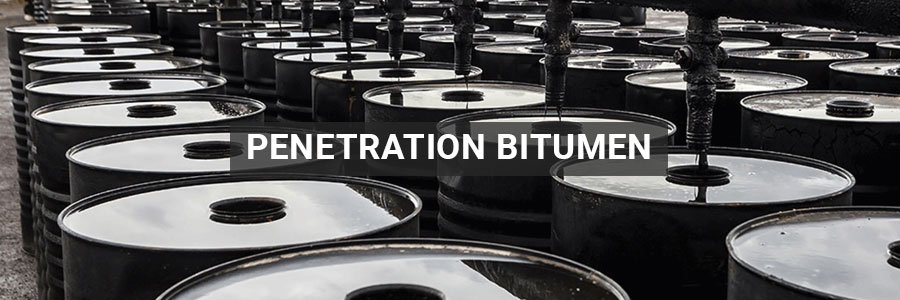Bitumen penetration grades

-
- Penetration grading is a widely used method to classify bitumen based on its hardness or consistency at a specific temperature. The penetration test measures the depth to which a standard needle penetrates a sample of bitumen under specified conditions. The results are expressed in penetration units, which represent the distance in tenths of a millimeter that the needle penetrates the bitumen sample.Here is a detailed explanation of penetration grades of bitumen:
- Penetration Test:
- Test Setup: The penetration test is conducted at a standard temperature of 25°C (77°F). A standard needle with a specific weight is allowed to penetrate vertically into a sample of bitumen for 5 seconds.
- Measurement: The depth of penetration is measured in units of 0.1 mm. The result is recorded as the penetration value.

- Penetration Test:
- Penetration grading is a widely used method to classify bitumen based on its hardness or consistency at a specific temperature. The penetration test measures the depth to which a standard needle penetrates a sample of bitumen under specified conditions. The results are expressed in penetration units, which represent the distance in tenths of a millimeter that the needle penetrates the bitumen sample.Here is a detailed explanation of penetration grades of bitumen:
- Penetration Grades:
- Penetration Grade 40/50: This grade indicates that the penetration value of the bitumen is between 40 and 50 units (0.1 mm) at 25°C. Bitumen in this grade is the hardest one.
- Penetration Grade 60/70: penetration value between 60 and 70 units at 25°C falls into this grade. It has a medium hardness.
- Penetration Grade 80/100: penetration value between 80 and 100 units at 25°C. It is relatively soft.
- Penetration Grade 120/150: penetration value between 120 and 150 units at 25°C. It is considered a softer grade.
- Penetration Grade 200/300: Bitumen with a penetration value between 200 and 300 units at 25°C falls into this category. It is relatively soft and is used in specialized applications.
- Penetration Grade 300/400: This grade indicates bitumen with a penetration value between 300 and 400 units at 25°C. It is among the softest penetration grades.

Application of Penetration Grades:
Penetration grades are crucial in determining the suitability of bitumen for various applications, especially in road construction. Softer grades (lower penetration) are often used in warmer climates, while harder grades (higher penetration) are suitable for colder climates.
Limitations:
The penetration test provides an indication of bitumen hardness, but it doesn’t capture all the performance characteristics required for specific applications. Therefore, additional tests, such as softening point and ductility, are often considered in conjunction with penetration values to ensure that bitumen meets the desired specifications.It’s important to note that penetration grades may vary by region, and specific standards and specifications should be consulted for accurate information in a particular location.
Tadbir Tejarat Company is ready to supply all kinds of bitumen, including 40/50, 60/70, 80/100 grades of bitumen.
